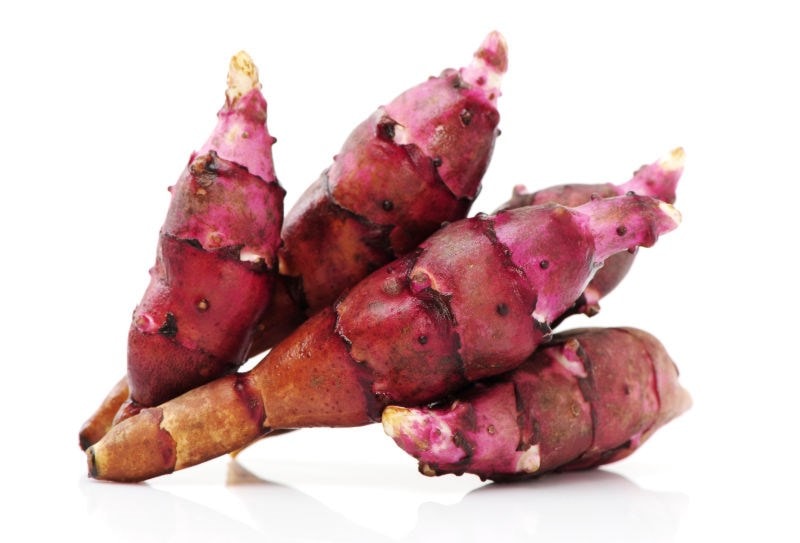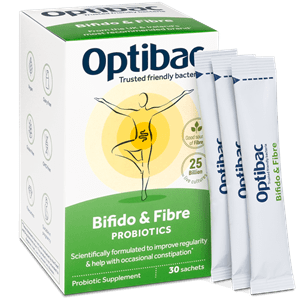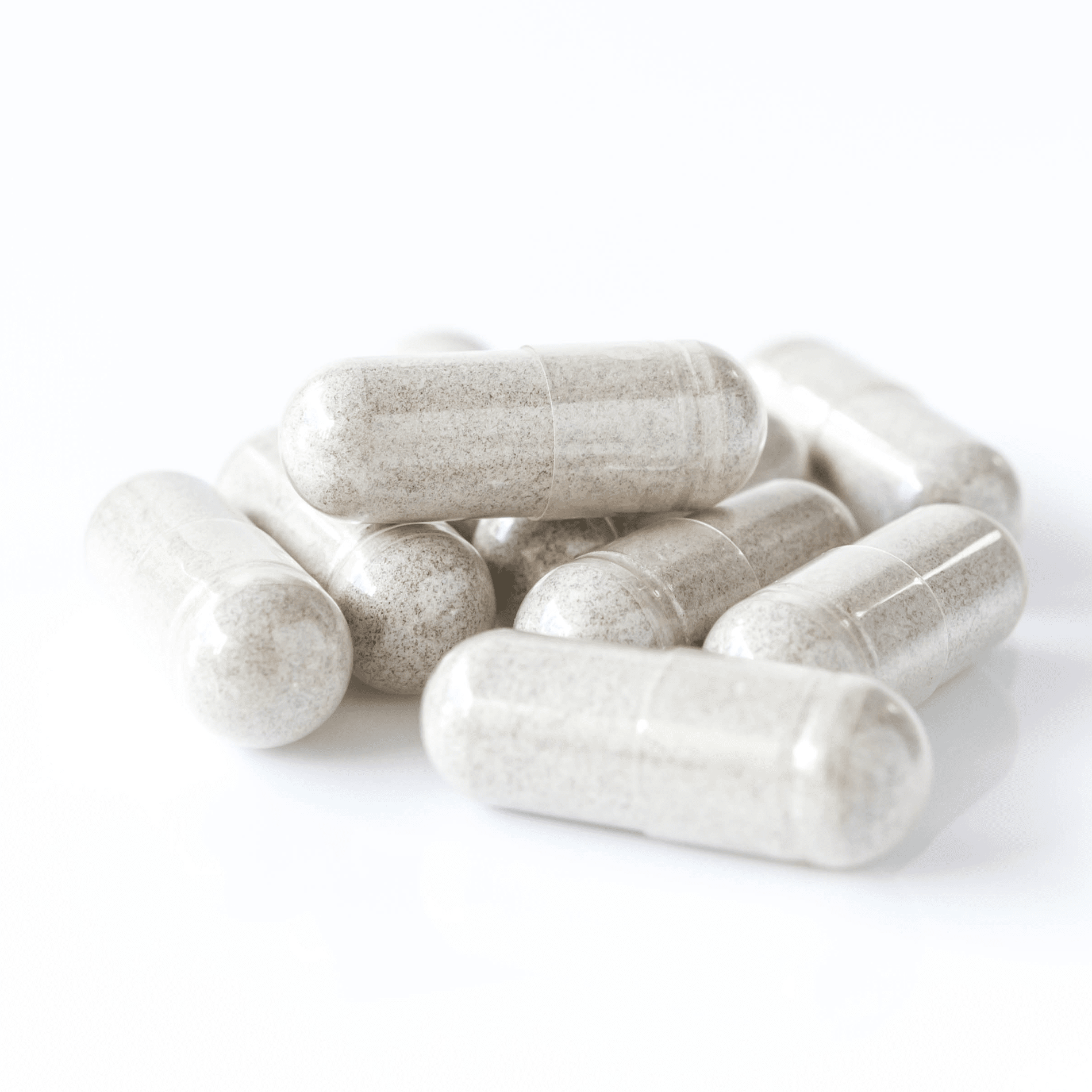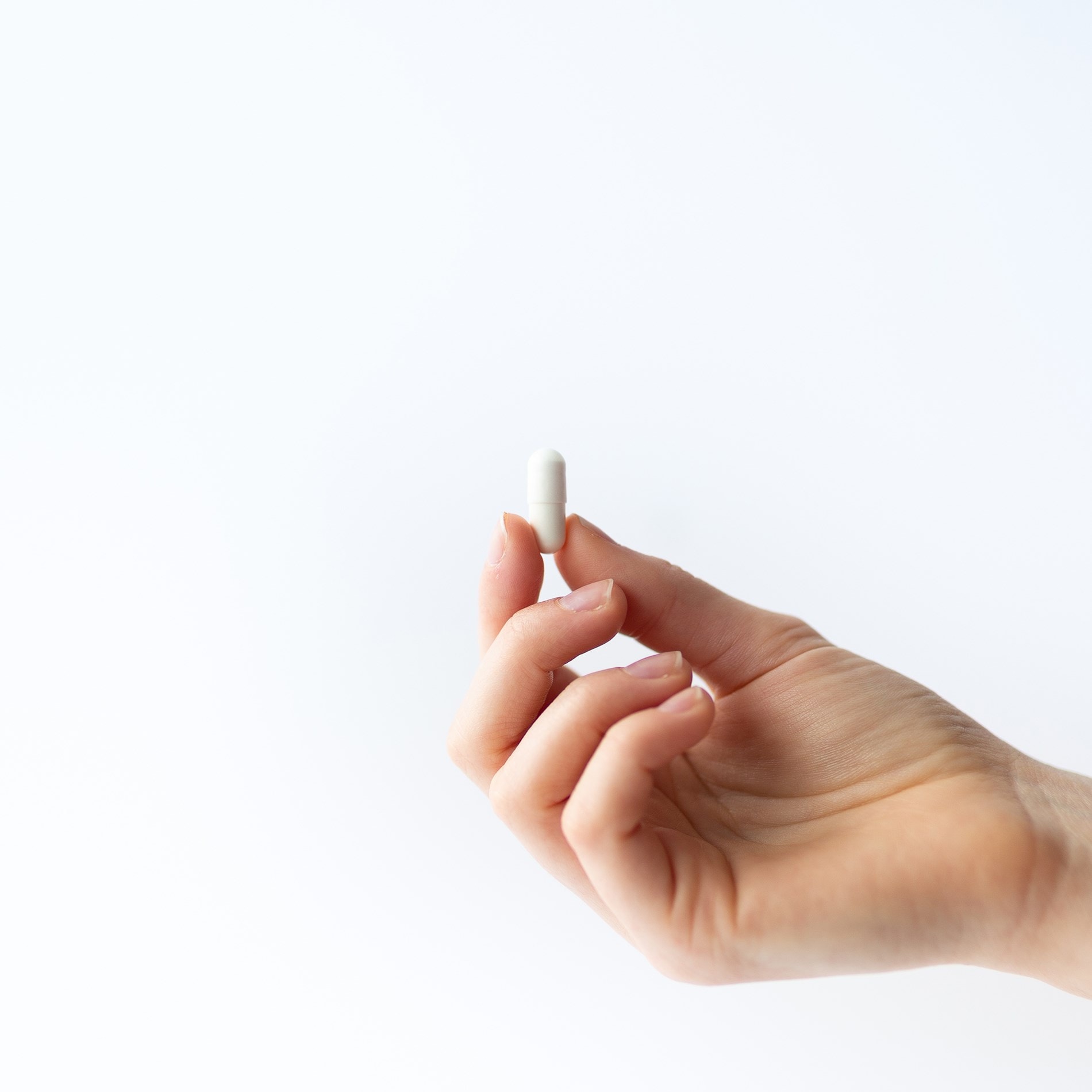Prebiotics: A look at FOS & Inulin
There has certainly been a buzz about prebiotics lately following the Michael Mosely program on TV. An increasing number of studies have looked at the various effects prebiotics may have on our gut microflora, and consequently their link with issues such as weight management, stress, and sleep. As inulin and Fructooligosaccharides (FOS) are two commonly researched prebiotics that individuals enquire about. For more information on prebiotics, you can read: What are prebiotics?.
In this article we'll take a closer look at these two common and well-researched prebiotics, Inulin and FOS.
We will also look at:

So what do we know about Inulin and FOS?
The principal difference between these two prebiotics is their structural difference. Fructooligosaccharides are shorter chain molecules and are linear in their molecular structure, whereas inulin is slightly longer and has more cross-links in its structure1.
Both Inulin and FOS are effective prebiotics that stimulate the growth of intestinal Bifidobacteria8, without leading to a rise in serum glucose or stimulate insulin secretion. However, it is believed that long-chain inulin is fermented a little more slowly because bacterial enzymes find it more difficult to access the interlaced cross-linked structure.
Prebiotics and weight loss, are they linked?
A number of clinical studies have shown that high doses of inulin given over a considerable period of time, may help to reduce fat, notably fat around our internal organs. This enables the organs and the body as a whole to work better, and reduce premature ageing. The mechanism of action for this is not fully understood, but is thought to be related to short chain fatty acids (SCFAs) production resulting from the gut microflora fermenting the inulin. These SCFAs then regulate hormones and signals involved in regulating the appetite.

In one trial, 44 participants with pre-diabetes took either 30g inulin, or a cellulose placebo each day, for 18 weeks (6 months). They were placed on a diet for the first 3 months, but were not on a diet for the last 3 months. Fat loss around the organs and under the skin dropped significantly more in the inulin group compared to on those in the cellulose group2.
In another trial, dosages of 35g or more per day of inulin were shown to decrease appetite3. A further study showed that 21g per day caused greater weight loss compared to placebo, and the authors proposed that a possible mode of action could be that inulin is able to regulate the appetite4.
Despite this, European Food Safety Authority (EFSA) has yet to approve a health claim for inulin associated with weight management. The following health claims have not (yet) been approved:
1. Inulin/oligofructose help you to feel fuller for longer
2. Foods with inulin/oligofructose curb your hunger feeling
3. Foods with inulin/oligofructose make you feel satisfied
Since we know that FOS also increases production of SCFAs, can we say that it could regulate appetite in the same way as inulin?
One trial found cookies enriched with FOS were more likely to increase satiety than those not enriched, when given to obese volunteers at a daily dose of 9g FOS5. However, as with the inulin trials, other FOS studies looking at weight management used different doses, e.g. 16g/day over 2 weeks6.
This inconsistency in the recommended dose for healthy weight management is partly due to the complex nature of weight management; which involves a number of different regulatory pathways in the body, as well as individual variability. Along with the lack of understanding of the mode of actions, it also highlights the need for further trials and undoubtedly an appreciation that it is very difficult to find a magic solution for weight management or other health issues.

Summary
In a nutshell:
- Inulin has been shown in preliminary clinical trials to increase weight loss when taken in fairly significant doses; however, much more research is needed before to ascertain the true benefits and efficacy in a wider range of individuals
- FOS may also contribute to weight management, by working in similar ways as inulin, again when taken in significant doses
- Although the exact pathways haven’t always been identified, we know prebiotics promote the growth of probiotic bacteria in the gut which are known to interact with hormone regulation in the body7
- FOS and inulin have both been shown to promote growth of Bifidobacteria
- The slightly longer fermentation time of inulin and the slightly shorter fermentation time of FOS each have their benefits; neither is particularly favourable over the other apart from individual suitability.
Have a look at the following links for more information about prebiotics:
BBC documentary discusses how gut bacteria may affect our sleep
Is it better to take prebiotics alone?
Healthcare professionals can find out more about the uses of prebiotics.
References
- Niness (1999) Inulin and Oligofructose: What Are They? J. Nutr; 129, 7: 1402S-1406s.
- Guess (2015) A randomized controlled trial: the effect of inulin on weight management and ectopic fat in subjects with prediabetes Nutr Metab (Lond); 12: 36.
- Pedersen (2013) Gut hormone release and appetite regulation in healthy non-obese participants following oligofructose intake. A dose-escalation study. Appetite; 66: 44-53.
- Parnell (2009) Weight loss during oligofructose supplementation is associated with decreased ghrelin and increased peptide YY in overweight and obese adults. Am J Clin Nutr; 89, 6: 1751-9.
- de Luis (2013) Double blind randomized clinical trial controlled by placebo with a fos enriched cookie on saciety and cardiovascular risk factors in obese patients. Nutr Hosp; 28, 1: 78-85.
- Cani (2006) Oligofructose promotes satiety in healthy human: a pilot study. Eur J Clin Nutr; 60, 5: 567-72.
- R. S. Thompson, R. Roller, A. Mika, B. N. Greenwood, R. Knight, M. Chichlowski, B. M. Berg and M. Fleshner, "Dietary Prebiotics and Bioactive Milk Fractions Improve NREM Sleep, Enhance REM Sleep Rebound and Attenuate the Stress-Induced Decrease in Diurnal Temperature and Gut Microbial Alpha Diversity," Frontiers in Behavioural Neuroscience , vol. 10, pp. 1-16, 2017.
- Jackson, P.P.J., Wijeyesekera, A., Theis, S., Van Harsselaar, J., & Rastall, R.A. (2023). Effects of food matrix on the prebiotic efficacy of inulin-type fructans: a randomised trial. Beneficial Microbes (published online ahead of print 2023). https://doi.org/10.1163/18762891-20220120
Popular Articles
View all Prebiotics articles-
Prebiotics20 Jul 2023
-
Prebiotics20 Jul 2023


